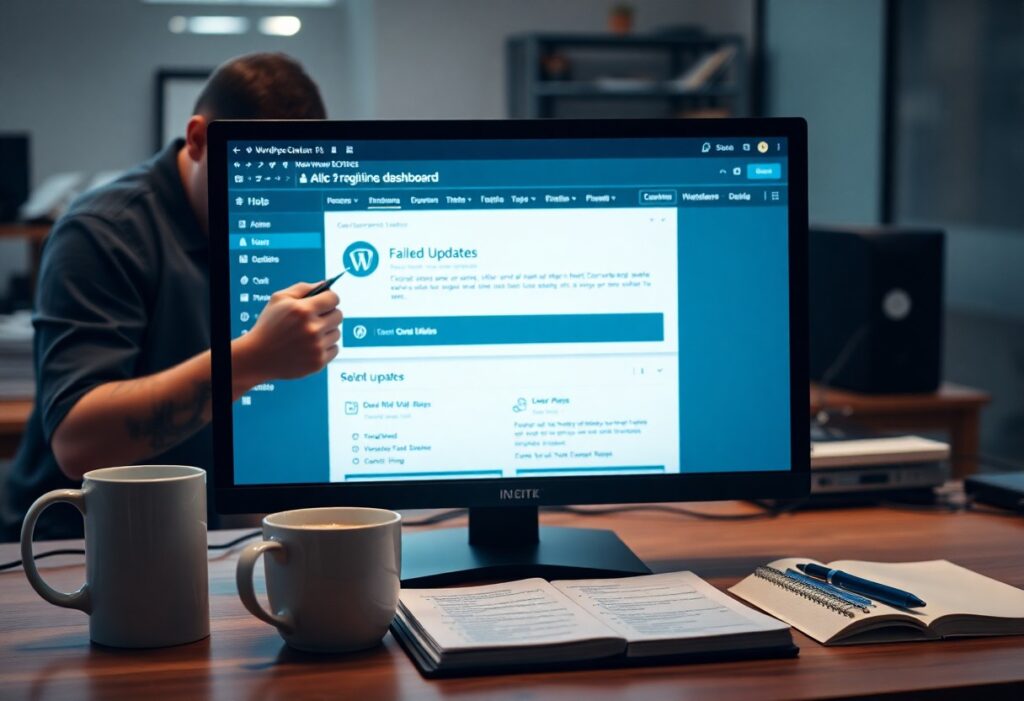There’s a common question among WordPress users about whether you can use any theme or plugin with your hosting plan. While many hosting providers support a wide range of options, some themes and plugins may have specific requirements that could lead to compatibility issues. It’s important to choose a hosting plan that meets the resource requirements of your selected themes and plugins to ensure optimal performance. By understanding your hosting capabilities, you can make informed choices that enhance your website without running into unexpected challenges.
Understanding Hosting Plans
Your choice of hosting plan significantly influences your website’s performance and capabilities. Different hosting plans offer varying levels of resources, support, and flexibility, making it vital to align your needs with the right plan. Factors such as website traffic, resource requirements, and specific use cases should guide your decision, ensuring you select a plan that supports any themes or plugins you wish to use.
Types of Hosting Plans
There are several types of hosting plans available, catering to different user needs and technical skills. Understanding these options helps you choose what best fits your requirements.
- Shared Hosting: Budget-friendly, ideal for small sites with low traffic.
- VPS Hosting: Offers more resources and control, suitable for growing websites.
- Dedicated Hosting: Complete server control, perfect for high-traffic sites.
- Managed WordPress Hosting: Optimized specifically for WordPress, including dedicated support.
- Cloud Hosting: Scalable resources, good for fluctuating traffic demands.
The right choice depends on your specific needs and future growth plans.
Key Features to Consider
Several key features should guide your hosting plan selection, ensuring it meets your operational demands and supports your WordPress site efficiently.
- Performance: Speed and uptime, crucial for user experience.
- Security: Essential for protecting your site from threats.
- Support: Access to knowledgeable support staff around the clock.
- Scalability: The flexibility to upgrade resources as your site grows.
- Backup and Recovery: Regular backups to safeguard your data.
Any hosting plan should prioritize these features, ensuring your site runs smoothly and securely.
Choosing the right hosting plan means considering how these key features align with your website’s requirements. For instance, if you expect high traffic, prioritize strong uptime records and scalability. If content creation is your focus, look for plans that offer excellent support and backup solutions. These features directly impact your site’s stability and potential for growth, guiding you toward a more successful online presence.
- Performance: Fast load times enhance user satisfaction.
- Security: Look for features like SSL certificates and malware protection.
- Support: 24/7 customer service can save you time during crises.
- Scalability: Ensure you can easily upgrade without downtime.
- Backup and Recovery: Frequent backups keep your content safe.
Any hosting provider that prioritizes these aspects contributes to a safer and more efficient website management experience.
WordPress Themes
Choosing the right WordPress theme sets the tone for your website, impacting both aesthetics and functionality. Themes dictate your site’s layout, style, and usability, making it crucial to select one that aligns with your brand and goals. From minimalistic designs to robust e-commerce layouts, themes serve different purposes and audiences, influencing user experience significantly.
Compatibility with Hosting Plans
Your hosting plan plays a vital role in determining which themes you can effectively use. Shared hosting, for example, might limit you in terms of resource-heavy themes that require advanced functionality. Always check if the theme’s requirements are met by your hosting features, such as PHP version and storage capacity, to avoid performance issues down the line.
How to Choose the Right Theme
Selecting a theme involves considering factors like design, responsiveness, and specific features you need. Look for themes that are continually updated and well-reviewed by the community. Check for compatibility with popular plugins you plan to use and ensure it offers adequate support from the developer, creating a smoother experience for you.
Start by defining your website’s primary goals and target audience, as this will guide your selection process. Use the WordPress theme repository or credible marketplaces to filter through options that suit your specific needs. Look for demos to get a feel for the theme’s look and functionality. Consider responsiveness across devices, as over 50% of web traffic comes from mobile devices. Performance metrics, SEO-friendliness, and customization options are also crucial—evaluate these through expert reviews or user testimonials. Choosing a theme aligned with your vision ensures your website not only looks great but also performs optimally.
WordPress Plugins
Plugins extend the functionality of your WordPress site, providing vital features that can help enhance user experience, improve SEO, and streamline operations. Make sure to choose plugins that align with your website’s needs and the capabilities of your hosting plan.
Checking Plugin Compatibility
Before installing a plugin, verify its compatibility with your version of WordPress and hosting environment. Check for recent updates and user feedback, as these indicators often reveal how well a plugin is maintained and its ability to perform effectively on your site.
Tips for Selecting Plugins
Selecting the right plugins can significantly enhance your site’s performance and user experience. Focus on plugins with high ratings, regular updates, and positive reviews, ensuring they are aligned with your site’s specific needs. Additionally, assess the impact on your site’s loading speed and overall security. The following tips will guide you:
- Opt for reputable plugins with strong community backing.
- Look for lightweight options to minimize loading times.
- Prioritize plugins with a clear and user-friendly interface.
- Evaluate plugin performance through testing on a staging site.
- Consider support options and user documentation available.
Choosing plugins wisely can prevent performance issues and security vulnerabilities on your site. Investigate options that offer value for your specific needs. The following considerations can enhance your selection:
- Assess future scalability to accommodate your site’s growth.
- Prioritize plugins that offer vital features without unnecessary extras.
- Check reviews for long-term user satisfaction over recent trends.
- Easily integrate with your existing theme and other plugins.
- Test different plugins to find the most compatible options for your setup.
Factors Influencing Compatibility
Several factors can impact whether a specific WordPress theme or plugin works with your hosting plan. You should consider:
- Server resources
- PHP and MySQL requirements
- WordPress version
- File permissions
Any misalignment in these areas can lead to compatibility issues.
Server Resources
The capacity of your server resources directly affects your site’s performance and plugin functionality. If your hosting plan has limited RAM or CPU allocation, it may struggle to run resource-intensive themes or plugins efficiently. This can lead to slow load times or even site crashes during peak traffic. Upgrading to a plan with more allocated resources might be necessary for optimal performance.
PHP and MySQL Requirements
Your site’s compatibility with various plugins and themes heavily relies on the versions of PHP and MySQL that your hosting plan supports. Many modern plugins necessitate PHP 7 or higher, and MySQL 5.6 or above. Running outdated versions can cause plugins to malfunction or not install at all. Regularly updating your PHP and MySQL versions ensures compatibility and enhances site security and performance.
For example, if a plugin claims compatibility with PHP 8.0, using an older version may lead to issues such as unexpected errors or functionality loss. You should consult with your hosting provider to confirm the current PHP and MySQL versions on your server. Any outdated configurations can quickly become a barrier to using new themes or plugins effectively.
Troubleshooting Common Issues
Even with careful selection of themes and plugins, you may encounter compatibility issues with your hosting plan. Common symptoms include consistent errors, slow loading times, or features not functioning as expected. Identifying and resolving these issues is necessary to maintaining a smooth user experience.
Identifying Compatibility Problems
To identify compatibility problems, start by checking error messages in your WordPress dashboard or error logs in your hosting account. Pay attention to plugin conflict warnings or JavaScript errors that may indicate issues. Additionally, disabling plugins one at a time can help pinpoint which specific plugin is causing the conflict.
Solutions and Workarounds
Once you’ve identified compatibility issues, several strategies can help resolve them. Updating your themes and plugins to their latest versions can often fix conflicts. If compatibility issues persist, consider switching to a different theme or finding alternative plugins that serve similar functions. You might also reach out to your hosting provider for assistance or consult with developers in forums for tailored solutions.
Exploring solutions and workarounds can effectively address compatibility issues. For example, if a specific plugin doesn’t work with your chosen theme, search for lightweight alternatives that deliver similar features without the same conflicts. Engaging with the WordPress community or referring to plugin documentation can offer valuable insights. Implementing a staging environment to test changes before going live can also prevent potential disruptions to your site, ensuring a seamless experience for your visitors.
Best Practices for Theme and Plugin Use
To ensure your WordPress site runs smoothly, adhering to best practices for theme and plugin use is crucial. Start by selecting themes and plugins from reputable sources, paying attention to user reviews and compatibility with your hosting. Following these guidelines mitigates the risk of conflicts that could hinder your site’s performance.
Regular Updates
Keeping your themes and plugins updated is vital for security and functionality. Developers frequently release updates to patch vulnerabilities and improve compatibility with WordPress core updates. By regularly updating your selections, you safeguard your site against potential exploits and ensure you’re making use of the latest features available.
Optimization Tips
Optimizing your themes and plugins enhances your website’s performance, ensuring faster load times and better user experience. Focus on reducing the number of active plugins, as excessive use can slow down your site. Utilize caching plugins and optimize images to improve load speed, ultimately boosting your SEO rankings.
- Reduce the number of active plugins.
- Utilize caching plugins for performance.
- Optimize images to avoid slow load times.
After implementing these tips, monitor your site’s speed through tools like Google PageSpeed Insights to identify further areas for improvement. Adjust settings in your caching plugins based on user feedback and analytics results.
- Monitor speed using tools like Google PageSpeed Insights.
- Adjust caching plugin settings based on analytics.
- Identify further areas for performance improvement.
After analyzing the results, consider optimizing your database by removing unnecessary entries and optimizing queries, which can significantly enhance your site’s responsiveness and overall performance. Frequent reviews of installed themes and plugins also ensures they continue to serve your site’s objectives effectively.
Summing up
On the whole, you can use most WordPress themes and plugins with your hosting plan, but it’s important to check for compatibility with your specific hosting service. Some providers may have restrictions on certain themes or plugins that could affect performance or functionality. Always review your hosting plan’s guidelines and consider the resource requirements of the themes and plugins you wish to use to ensure optimal performance for your website.
FAQ
Q: Can I use any WordPress theme with my hosting plan?
A: Most hosting plans allow the use of any WordPress theme that complies with WordPress guidelines. However, some hosting providers may have specific themes optimized for their services.
Q: Are there any restrictions on plugins I can use?
A: Generally, you can use any plugin that meets WordPress standards. Some hosts may restrict certain plugins known for security issues or high resource usage.
Q: What should I check before choosing a theme for my hosting plan?
A: Verify the theme’s compatibility with your PHP version, its responsiveness, and the support it provides. It’s also advisable to check if it is optimized for performance.
Q: Do some hosts offer pre-installed themes and plugins?
A: Yes, many hosting providers offer pre-installed themes and plugins optimized for their servers, making setup easier for beginners.
Q: Will using a premium theme or plugin affect my hosting performance?
A: Performance may vary based on the quality and coding of the premium theme or plugin. Well-coded options generally perform better and are less resource-intensive.
Q: Can shared hosting plans support resource-heavy themes and plugins?
A: While shared hosting can support most themes and plugins, resource-heavy options may slow down your site. Consider upgrading if you experience performance issues.
Q: How can I ensure compatibility between my themes/plugins and hosting?
A: Always check the theme/plugin documentation and reviews, as well as your host’s recommendations, to ensure compatibility and optimal performance.



